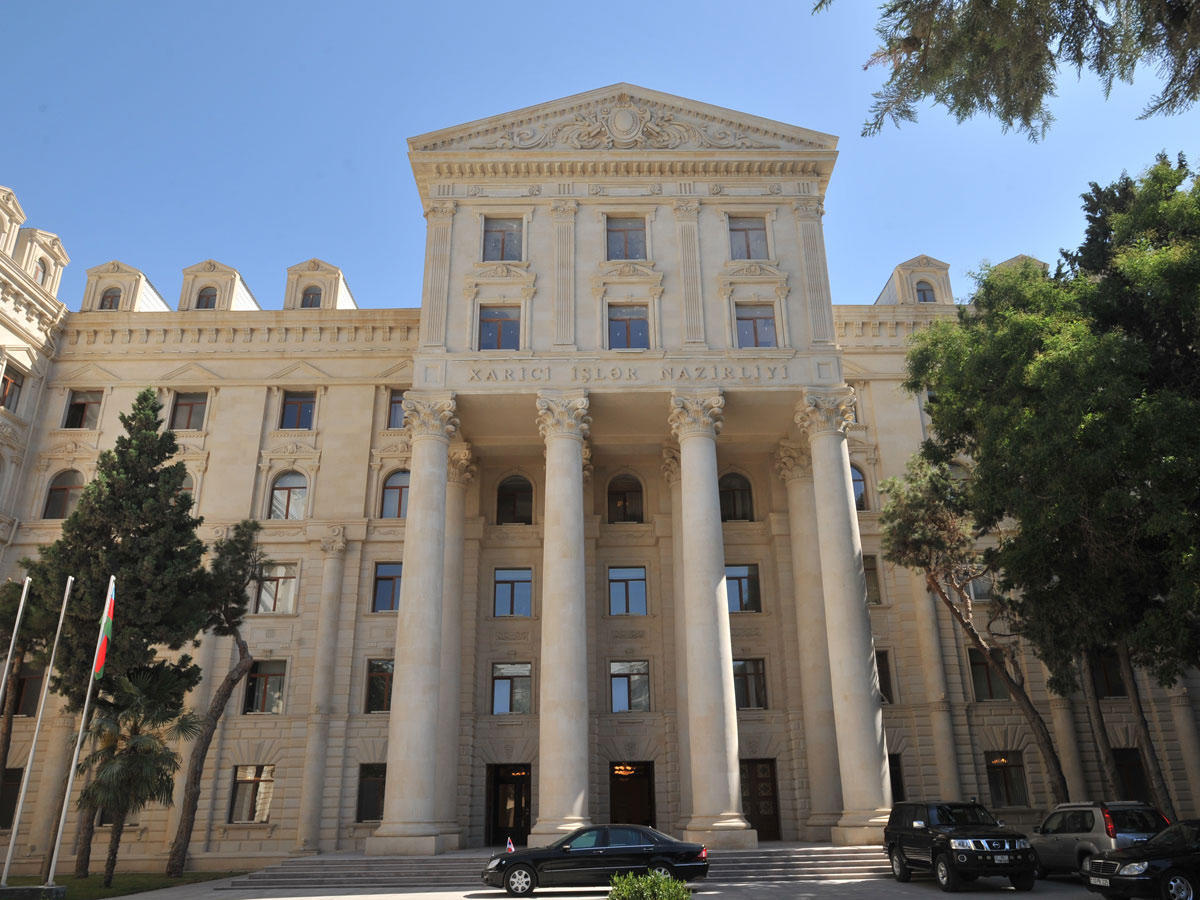Baku condemns Yerevan’s anti-peace stance

By Vugar Khalilov
Baku has strongly condemned Yerevan’s destructive stance against the background of efforts being made to mend Azerbaijani-Armenian ties after the 44-day war in 2020.
In a statement posted on its website on April 11, the Azerbaijani Foreign Ministry said: “We reject another unfounded, illegal, hostile statement by the Armenian Foreign Ministry, strongly condemn the destructive position of the Armenian side at a time when decisions are made to take steps to normalize relations between the two countries.”
The ministry recalled that about one million Azerbaijanis were subjected to ethnic cleansing and their fundamental rights have been grossly violated by Armenia for almost 30 years. Armenia committed multiple war crimes during military aggression, including the barbaric slaughter of 613 civilians overnight in Azerbaijan’s Khojaly region.
Moreover, Armenia is responsible for the fate of approximately 4,000 Azerbaijanis who went missing in the early 1990s and some of whose mass graves were only recently discovered, the statement added.
Taking all the aforementioned facts into account, “on what grounds does the Armenian side, which is still evading responsibility for numerous crimes, talk about mass murder or ethnic cleansing?”, the statement stressed.
The Armenian Foreign Ministry’s latest statement [10 April 2022] encourages separatism in Azerbaijan, violates international law by interfering in another country's internal affairs, undermines regional peace efforts and shows that normalization and peaceful coexistence are not Yerevan's genuine intentions, it underlined
“Regardless of Armenia's choice, Azerbaijan will continue to move towards development and progress within its international borders in accordance with its obligations and international law,” the ministry emphasized.
On April 10, the Armenian Foreign Ministry issued a statement expressing solidarity with Armenians residing in Azerbaijan's internationally recognized territories, referring to these lands as "Nagorno Karabakh" – an entity that does not exist in Azerbaijan.
The trilateral ceasefire deal signed by the Azerbaijani, Russian and Armenian leaders on November 10, 2020, ended the three-decade conflict over Azerbaijan’s Karabakh region which along with the seven adjacent districts came under the occupation of Armenian armed forces in the war in the early 1990s.
On January 11, 2021, the Azerbaijani, Russian and Armenian leaders signed the second statement since the end of the 44-day war. The newly-signed statement was set to implement clause 9 of the November 2020 statement related to the unblocking of all economic and transport communications in the region.
On November 26, 2021, the Azerbaijani, Russian and Armenian leaders signed a statement and agreed on a number of issues, including the demarcation and delimitation of the Azerbaijani-Armenian border by late 2021, some points related to humanitarian issues and the issue of unblocking of transport corridors which applies to the railway and to automobile communications.
On December 14, 2021, during the Brussels meeting, organized between Azerbaijani and Armenian leaders at the initiative of European Council President Charles Michel, the sides reaffirmed their commitment to the conditions agreed in the Sochi meeting.
Both sides agreed to establish a temporary working group on the delimitation of the Armenian-Azerbaijani border.
The issue of demining the liberated territories of Azerbaijan was also brought up on the agenda, and the European Union's readiness to provide technical assistance to Azerbaijan in this regard was underlined at the meeting.
On April 6, 2022, Azerbaijani President Ilham Aliyev, Armenian Prime Minister Nikol Pashinyan and European Council President Charles Michel met in a trilateral format in Brussels again.
The meeting was held for a continuation of the discussions on the situation in the South Caucasus region and the development of EU relations with both countries.
The leaders took stock of developments since their last meeting in Brussels in December 2021 and their videoconference, together with French President Emmanuel Macron, in February 2022. They reviewed progress on the implementation of undertaken commitments. The leaders discussed the recently reported tensions and reiterated the necessity of adhering fully to the provisions of the 9/10 November 2020 trilateral statement.
Both Aliyev and Pashinyan have expressed a willingness to work quickly toward a peace agreement between their countries. To that end, it was decided to instruct foreign ministers to begin work on drafting a future peace treaty that would address all of the issues.
At the same time, it was also agreed to convene a Joint Border Commission by the end of April. The Joint Border Commission's mandate will be to: delimit the bilateral border between Armenia and Azerbaijan, and ensure a stable security situation along and in the vicinity of the borderline.
---
Here we are to serve you with news right now. It does not cost much, but worth your attention.
Choose to support open, independent, quality journalism and subscribe on a monthly basis.
By subscribing to our online newspaper, you can have full digital access to all news, analysis, and much more.
You can also follow AzerNEWS on Twitter @AzerNewsAz or Facebook @AzerNewsNewspaper
Thank you!
